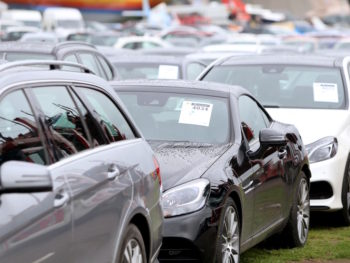Retail-ready used car stock in ‘noticeably higher demand’ post-lockdown
While the used car market is seeing a particularly strong performance post-lockdown, most dealers are focusing on retail-ready vehicles to reduce time to sale and are expected to do so for the rest of the year.

The VRA says most used car dealers are focusing on retail-ready vehicles to reduce time to sale – and are expected to do so for the rest of the year.
According to the Vehicle Remarketing Association (VRA), most retailers are now entering back into a cycle of replenishing their stock and, generally, nearly all of the important elements of the market are now working as normal. This is backed by latest data; used car prices at Aston Barclay hit their highest-ever level in Q2 as demand continued to exceed supply post-lockdown, amid predictions of continued buoyancy in Q3.
And BCA has reported that used car values from its data rose 75.7% in June compared to April, again illustrating the rocketing – and trend-bucking – demand being seen in the industry.
However, VRA chair Sam Watkins explained that most dealers were looking for retail-ready stock as they try to make the process of acquiring and retailing stock as straightforward as possible at a time when the ongoing effects of the coronavirus crisis meant that key services such as transportation remained erratic.
Detailing the background to this, Watkins said: “Some difficult issues remain, especially around the movement of vehicles, which are not yet back to usual levels of efficiency. That is introducing sometimes quite lengthy delays into getting a vehicle to a dealer.
“What overall impact does this have? It means that the retailer has less time and a reduced inclination to prepare a car for sale themselves, because that creates further increased time-to-sale.
“In addition, as the digitisation of vehicle retailing expands, especially on used vehicles, clarity on vehicle condition for the consumer is critical in building trust and confidence.
“That’s why there is now a noticeably higher demand for retail-ready stock. It’s all about the fastest possible turnaround and the quickest return on capital.”
As a result of the trend, large organisations disposing of cars, such as leasing companies, or even dealers themselves, are investigating using centralised resources to recondition and transport vehicles, according to Watkins.
“There is definitely more interest in this area and not just because of the coronavirus crisis. Increased complexity in vehicle technology, such as ADAS, is having an additional impact on dealer appetites to operate reconditioning services in-house.
“It is possible that we are at starting to see a structural shift where an increasing number of dealers see themselves as no longer in the business of bringing vehicles up to a necessary market standard.
“Large-scale vendors of vehicles into the used market sector are realising that they will need to meet this changing need and so are increasingly looking to ensure that as much of their stock falls into the retail-ready category as possible.
“Putting in place processes that satisfy this demand is an obvious step and something that we expect to see it emerge as a major trend over the course of the second half of 2020.”












